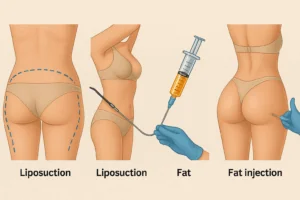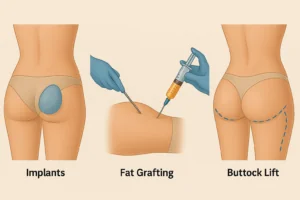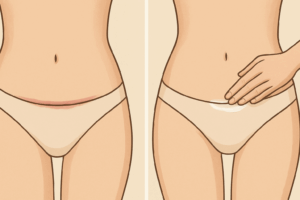The thyroid gland is an important endocrine gland that regulates our body's metabolism. This small butterfly-shaped gland in the neck produces hormones that control the body's use of energy, body temperature and the functioning of many organ systems. If the thyroid gland is not functioning properly, various health problems can occur. In this article, we will discuss the symptoms and treatment methods of thyroid diseases in detail.
Thyroid Gland and Functions
The thyroid gland produces two main hormones that regulate our body's metabolic rate:
- Tiroxin (T4)
- Triiyodotironin (T3)
The production of these hormones is controlled by Thyroid Stimulating Hormone (TSH) secreted by the pituitary gland.
Common Thyroid Diseases
1. Hypothyroidism
Hypothyroidism is a condition in which the thyroid gland cannot produce enough hormones.
Symptoms:
- Fatigue and weakness
- Gaining weight
- Sensitivity to cold
- Constipation
- Skin dryness
- Hair losss
- Depression
- Muscle aches
- Menstrual irregularities
Treatment Methods:
- Hormone Replacement Therapy: Synthetic thyroid hormone called levothyroxine is usually used.
- Dose Adjustment: The dose of medication is adjusted with regular blood tests.
- Lifestyle Changes: A balanced diet and regular exercise are recommended.
2. Hyperthyroidizm
Hyperthyroidism is a condition in which the thyroid gland produces excessive amounts of hormones.
Symptoms:
- Weight loss
- Rapid heartbeat
- Irritability and anxiety
- Sensitivity to heat
- Diarrhea or frequent stools
- Hand tremor
- Excessive sweating
- Sleep disorders
- Eye problems (especially in Graves' disease)
Treatment Methods:
- Antithyroid Drugs: Medicines such as methimazole or propylthiouracil are used.
- Radioactive Iodine Therapy: Used to shrink the thyroid gland.
- Surgical Intervention: Thyroidectomy (removal of all or part of the thyroid gland) can be performed.
- Beta Blockers: Can be used to regulate heart rate.
3. Thyroid Nodules
Thyroid nodules are abnormal growths that form in the thyroid gland.
Symptoms:
- Most nodules are asymptomatic
- Large nodules may cause swelling or pressure in the throat
- Difficulty swallowing or breathing
Treatment Methods:
- Monitoring: Small, benign nodules are usually only followed up.
- Fine Needle Aspiration Biopsy: Used to examine the structure of the nodule.
- Surgical Intervention: It can be applied for suspicious or large nodules.
- Radioactive Iodine Therapy: Can be used in some cases.
4. Thyroiditis
Thyroiditis is an inflammation of the thyroid gland.
Symptoms:
- Neck pain
- Tenderness in the thyroid gland
- Fever
- Symptoms of transient hyperthyroidism or hypothyroidism
Treatment Methods:
- Painkillers: Used to reduce inflammation and pain.
- Corticosteroids: Can be used in severe cases.
- Thyroid Hormone Therapy: Applied when necessary.
Diagnosis of Thyroid Diseases
The methods used to diagnose thyroid diseases are as follows:
- Blood Tests: TSH, T3 and T4 levels are measured.
- Thyroid Ultrasound: Used to visualize the structure of the thyroid gland and nodules.
- Thyroid Synthyroid: Used to assess the function of the thyroid gland.
- Fine Needle Aspiration Biopsy: Used for examination of suspicious nodules.
Recommendations for Maintaining Thyroid Health
- Balanced Nutrition: Eat foods containing iodine (seafood, iodized salt).
- Regular Exercise: Supports metabolism and improves overall health.
- Stress Management: Chronic stress can affect thyroid function.
- Regular Checkups: Have regular thyroid checks, especially if you are in a risk group.
- Avoid Smoking and Alcohol: These substances can negatively affect thyroid health.
Thyroid Diseases and Pregnancy
Thyroid function is of particular importance during pregnancy. Thyroid diseases in pregnancy:
- Risk of miscarriage
- Premature birth
- Developmental delay
- It can increase risks such as pre-eclampsia.
Therefore, thyroid function of pregnant women should be closely monitored.
Management of Thyroid Diseases in Pregnancy:
- Regular Checkups: Thyroid hormone levels should be checked regularly throughout pregnancy.
- Adjusting Drug Doses: Doses of thyroid medicines may change during pregnancy.
- Iodine Supplementation: Iodine supplements can be taken on doctor's recommendation.
Thyroid Diseases and Quality of Life
Thyroid diseases can significantly affect quality of life when not treated appropriately. However, with proper diagnosis and treatment, many patients can lead a normal life.
Recommendations for Improving Quality of Life:
- Treatment Adherence: Take your medicines regularly and keep your doctor's appointments.
- Nutrition: Follow a thyroid-friendly diet.
- Exercise: Do regular physical activity.
- Sleep Pattern: Get enough and quality sleep.
- Support Groups: Share your experiences with others in a similar situation.
Conclusion
Thyroid diseases can be successfully managed with early detection and appropriate treatment. If you notice signs of thyroid disease in your body, consult an endocrinologist. Regular check-ups and a healthy lifestyle play an important role in maintaining your thyroid health.
Remember that every patient is unique and treatment plans should be tailored to the individual. Therefore, if you have any concerns about your thyroid health, be sure to consult a health professional. With the right information and appropriate treatment, thyroid diseases can be effectively managed and a healthy, quality life can be maintained.

























